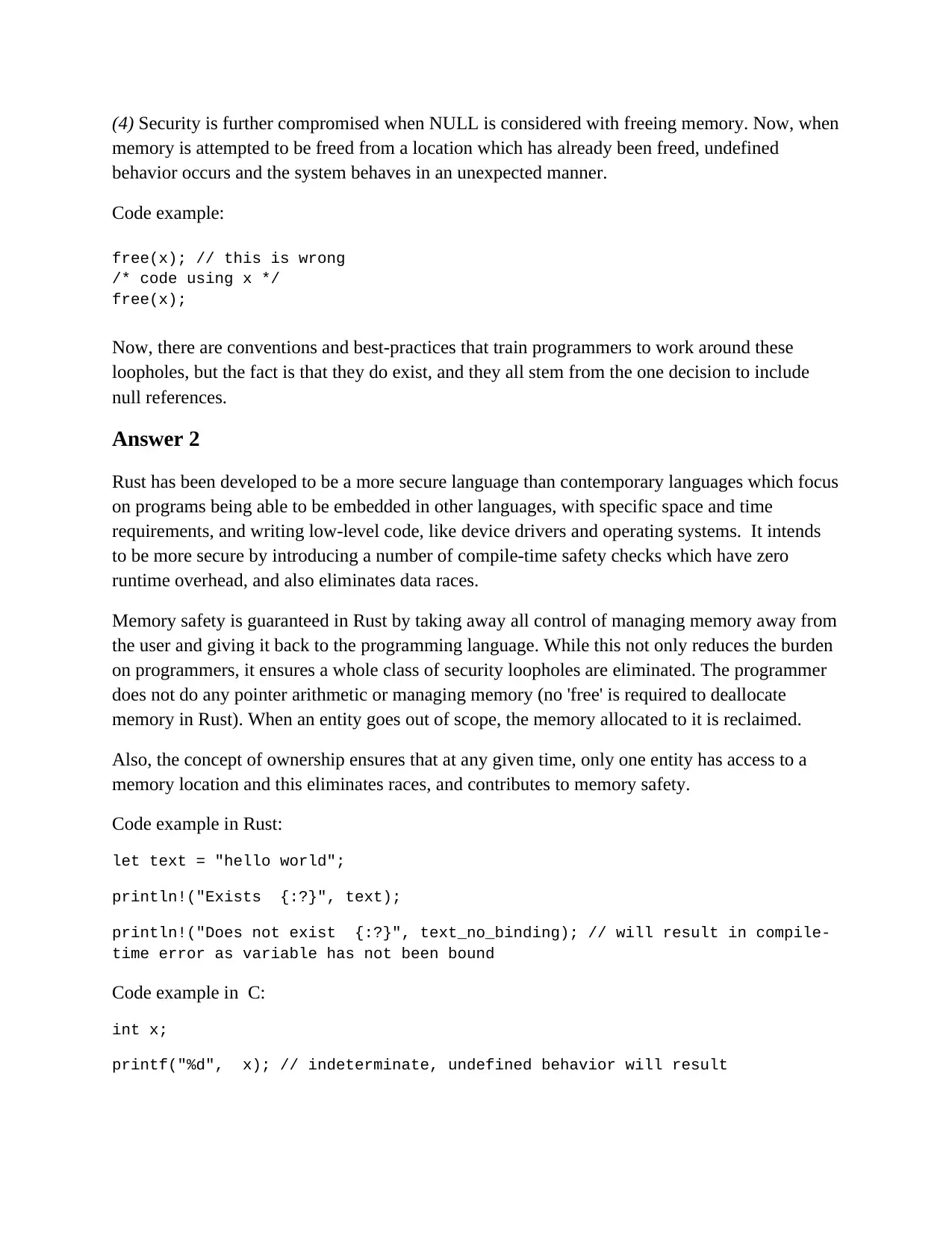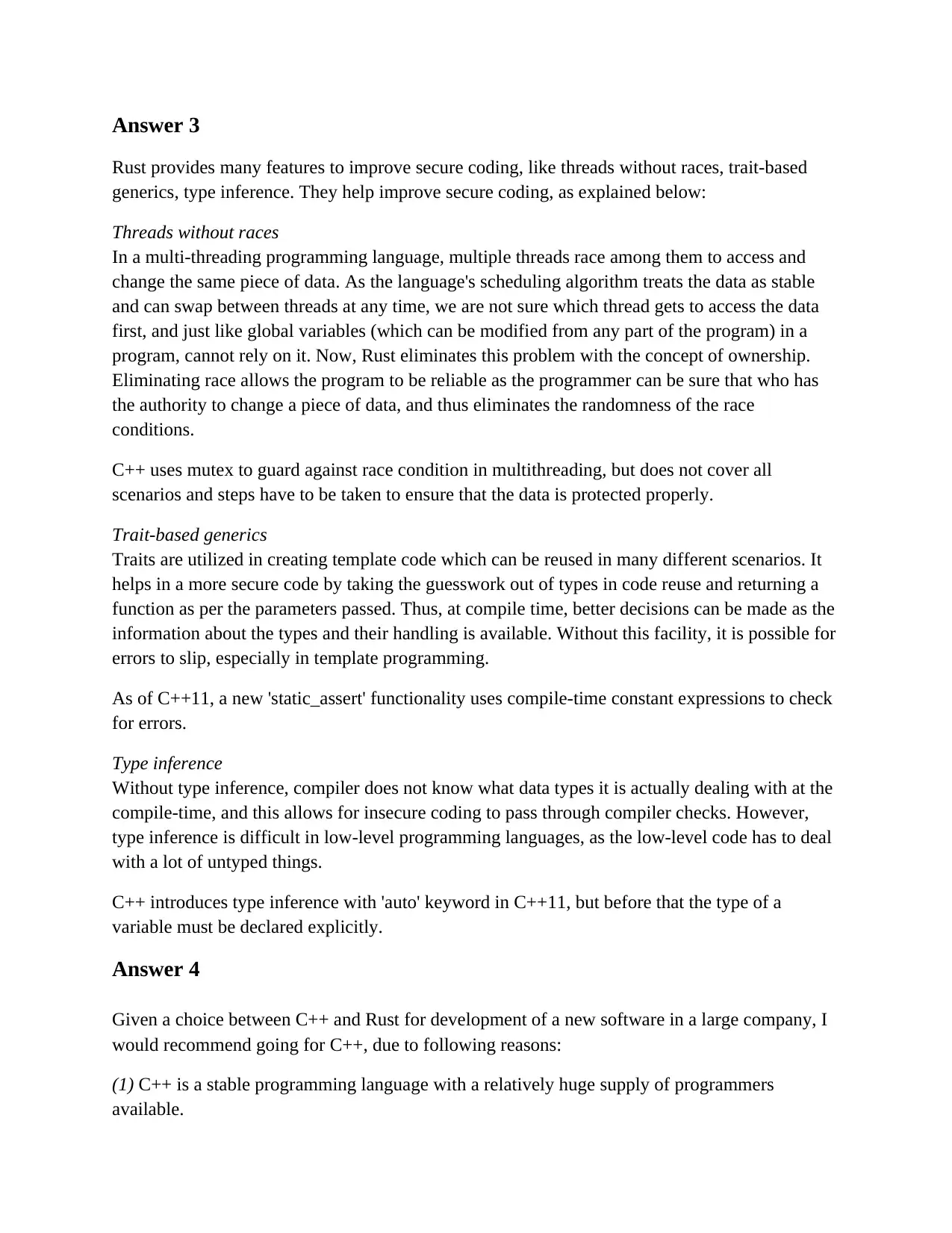C++ vs. Rust: Security, Performance, and Development Analysis
VerifiedAdded on 2019/09/16
|4
|1387
|439
Homework Assignment
AI Summary
This assignment presents a comparative analysis of C++ and Rust, two prominent programming languages. The solution begins by highlighting the historical context of null references in C++ and their potential to introduce complexity and security vulnerabilities, using code examples to illustrate these issues. The assignment then transitions to Rust, emphasizing its design for memory safety through compile-time checks, ownership, and the elimination of data races, contrasting its approach with C++. Furthermore, the solution explores how Rust's features, such as thread safety, trait-based generics, and type inference, contribute to secure coding practices. Finally, the assignment concludes with a recommendation for choosing between C++ and Rust for software development in a large company, considering factors such as language stability, available tools, programmer availability, performance, and the maturity of the ecosystem. The recommendation favors C++ due to its established status, extensive tool support, and the pragmatic need for a stable language with a large developer base, while acknowledging Rust's superior security features.
1 out of 4





![[object Object]](/_next/static/media/star-bottom.7253800d.svg)